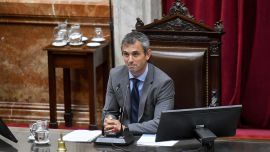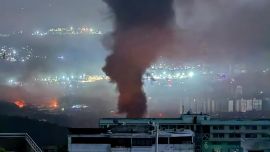Inflation continues to be unstoppable: consumer prices increased by 7.4 percent in July alone, breaking a 20-year record, official data has revealed.
The news, which underlines the inability of the government to stop runaway hikes, means prices rose last month at the fastest pace since 2002 and are up by a cumulative 46.2 percent so far in 2022.
According to the data, released by the INDEC national statistics bureau on Thursday, Argentine families paid 71 percent more for their purchases than in last July. Over that 12-month period, the largest increases have been registered in clothing and footwear (96.7 percent), restaurants and hotels (90.6 percent), health (72.1 percent), and food (70.6 percent).
July’s figure rise was in line with the calculations of private consultants, who are already projecting that price increases will surpass 90 percent by 2022. Some recent reports have even forecast a rate of three digits.
This news prompted the Central Bank to raise rates again, which placed the yield on fixed-term deposits at around 98 percent.
Shortly after taking office, new Economy Minister Sergio Massa had anticipated that inflation data for July and August would be bad. In view of the situation, the government has convened the Minimum Living and Mobile Wage Council (SMV) for August 22 in order to update values. In addition, it will try to reach a 60-day price and wage agreement with employers and trade union confederations in order to stabilise the social situation and provide certainty.
Food prices are of particular concern and rose by six percent last month alone. The strongest increases were observed in fruit, vegetables and grocery products, including onions (57.9 percent), lettuce (40.5 percent), sweet potatoes (36.5 percent), sugar (30.5 percent), among others.
Items linked to the winter holidays also had a strong impact on the overall price increase, with recreation and culture rising 13.2 percent and restaurants and hotels up 9.8 percent. Argentina, the third largest economy in Latin America, has suffered for years from very high inflation, with prices rising 50.9 percent last year. But price increases have soared even further this year, pushed by political instability and global inflationary pressures following the outbreak of war in Ukraine.
The consumer price index is expected to close this year with an annualised increase of more than 90 percent, according to the most recent survey of market expectations conducted by the Central Bank.
Along with soaring inflation, the nation’s currency, the peso, is also under strong pressure, despite the tightening of exchange controls since 2019.
The official exchange rate stood at 140.98 pesos to the dollar on Thursday, but the US currency traded at around 297 pesos to the dollar on the black market.
As part of a massive US$44-billion debt restructuring deal, Argentina’s government committed to the International Monetary Fund that it would reduce its fiscal deficit from three percent of GDP in 2021 to 2.5 per cent this year, followed by 1.9 per cent in 2023 and 0.9 per cent in 2024.
Most analysts date back the market turbulence and the soaring dollar to the exit
of Economy Minister Martín Guzmán in early July.
“The resignation of Guzmán triggered price leaps generated not only by the uncertainty following his exist but also by the consolidation of a process within the government,” Agustín Berasategui, the economist of ACM consultants told PERFIL, adding: “On the one hand, we have preventive price mark-ups trying to protect the earnings of different sectors on the supply side in the first instance. On the other hand, there were price lags, above all from sectors which had problems determining their sales prices due to the lack of information about restocking prices.
The Libertad y Progreso foundation had forecast a July figure of eight percent or 47 percent inflation so far this year, the highest cumulative figure since 1991.
“After the resignation of Guzmán, the uncertainty surrounding restocking costs due to the rise in financial dollars had its consequences in price terms. Unlike other periods, the rise in parallel exchange rates functioned as a clear mechanism for transmitting inflationary dynamics,” said Agostina Myronec de Ecolatina.
Apart from the momentum from July, this month’s figure stands to be inflated by a 61 percent rent increase for those renewing their contracts, a rise in apartment expenses of between six and seven percent, an 11.34 percent hike in prepaid health schemes and bus fares in the AMBA Buenos Aires Metropolitan Area upped by 40 percent (with the minimum fare now 25.20 pesos).
“With the recent developments, the nominal perspectives have notably deteriorated. Even with inflation slowing down in the closing months of the
year to a monthly five percent, we project an annual inflation of around 90 percent at the end of the year,” concluded Myronec.
– TIMES/AFP/NA






















Comments